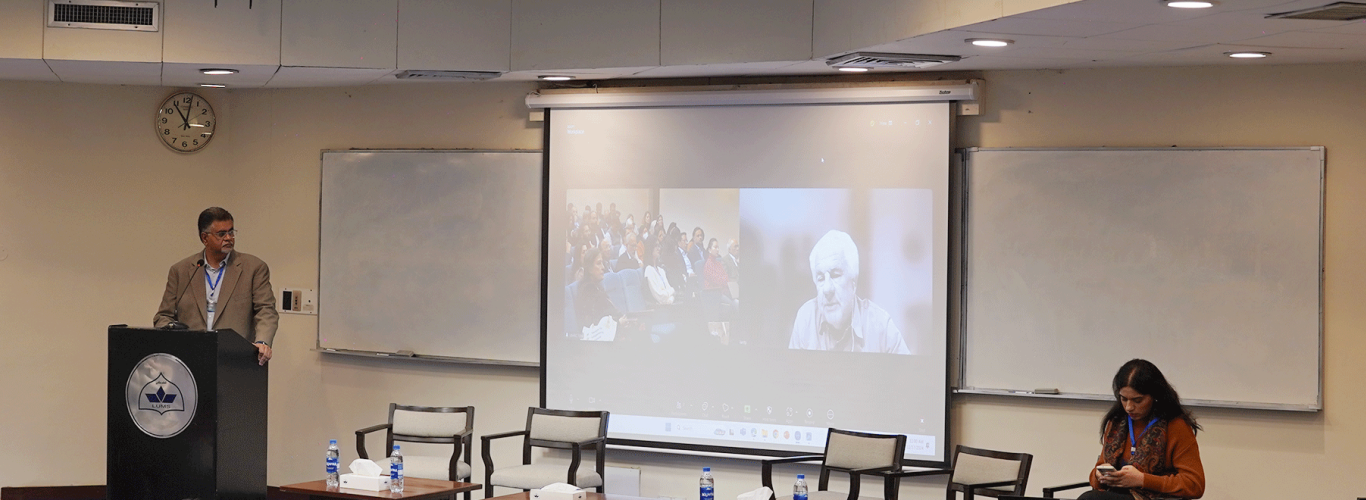Pathways to Development: Top Quotes from Keynote Speaker, Lant Pritchett
On December 17, as part of the Pathways to Development Conference 2024, Lant Pritchett, a renowned development economist and Professor at the London School of Economics, delivered a compelling lecture on governance, inclusion, and the dynamics of economic growth. Drawing on decades of research and experience, he shared nuanced insights into the challenges faced by nations striving for development. Here are some of his most thought-provoking quotes from the session.
In many cases around the world, economic growth has been very rapid, but that has been accompanied by stagnating or deteriorating state capability and stagnating or deteriorating state legitimacy. Often this tension between rapid economic growth but deteriorating capability and politics ends in what can be called ‘hell in a handbasket’. It often ends up in kind of regime changes and uncertainty.
National development is an empirically necessary condition. No country gets to high levels of human wellbeing without national development and no country that gets to national development doesn't also get to high levels of human wellbeing.
One thing inclusion could mean is focus on post-tax and transfer incomes or consumption. This is a vision of inclusion as redistribution and the main instruments are specific programmatic interventions of the government. The second notion of inclusion is that you arrange the working of the economic system so as to maximally include the broadest possible swath of the population into opportunities for high productivity.
My controversial claim is that development economics originating in the North or West has been putting radically too much attention to inclusion as redistribution and conversely too little attention to inclusion and to productivity through broad-based growth. State capability matters. The ability of the state to effectively create rule of law, to prevent crime, to assure human rights is super important. If you get economic growth at the expense of deteriorating state capability, that's going to lead you to have less expectation of improvement than if your growth strategy is consistent with expanding state capability.
There's a basic narrative that I think is worrisome, which is that countries have managed to create rapid economic growth in spite of low-quality institutions. But oftentimes this is done by creating what I call a closed order deal environment. That is, countries, for a variety of reasons, have adopted laws and formal procedures that provide labour protection and environmental regulation. In many instances, these regulations that are on the books are far beyond the actual capability of the organisations to enforce them in a neutral universal way. So this creates a chaotic environment in which private actors can't really predict what will happen to them because of the inconsistency between law and enforcement.
The problem is if you continue to have a formal set of rules that are not enforced, or not uniformly enforced, or not informed in a universal and transparent way, then you create closed order deals for favoured investors. That does several things. One, it undermines state capability as the regulatory institutions are necessarily committed to unequal treatment of actors. It creates a dual economy in which those inside the closed order deal economy are allowed to be productive and those outside are facing chaotic and perhaps predatory deals and are kept or located in an informal economy in which it was very hard to create the long-term cooperation and commitments that it takes to reach high productivity. And all of this tends to undermine the legitimacy of the state.
Good governance and inclusion are two sides of the same coin. The goal of economic inclusion is the rising opportunity for individuals to participate in highly productive value creation through good jobs and large productive firms or opportunities for real entrepreneurship. And that that is the form of inclusion that is most critical, I think, to a positive feedback loop of national development.























